1. Reserve Study Presentation: Common HOA Budgeting Mistakes Joel L. Tax, RS PRA
2. 1. Inaccurate component list 2. Looking to the past to predict future projects 3. Ignoring inflation – assuming interest has a greater positive impact 4. Not regularly increasing the reserve allocation amount 5. Doing Nothing! Common Budgeting Mistakes
3. By far the #1 reason we see Clients struggling with reserve budgeting is that they have an incomplete component list. 1. Inaccurate Component List
4. If the component list and their associated costs are not known then adequate budgeting is not possible. 1. Inaccurate Component List
5. 2. Looking to the past to predict future projects - Buildings do not age gracefully!
6. 2. Looking to the past to predict future projects - What is seems to be random to a Client is often just another day at the office for a knowledgeable professional.
7. 3. Ignoring Inflation • Inflation impacts total cost of replacement for all components. • Interest earned only impacts the actual reserve account balance. • 3% compound inflation equals a doubling of costs every 23.5 years! Impact of Inflation
8. 3. Ignoring Inflation - Interest vs. Inflation Reserve Account Balance: $100,000 Replacement Costs : $1,000,000 1% Interest Earned / yr. 3% Inflation / yr. = $1,000 Earned - Positive Impact = $30,000 Additional Funding Needs – Negative Impact
9. 3. Ignoring Inflation - Offsetting I D E A • Offset the impacts of inflation with regular annual increases to the reserve account allocation rate. • This typically requires a regular increase to the allocation rate. Annual increases are most fair to the current and future members of the community.
10. Annual increases are most fair to the current and future members 4. Not regularly increasing the reserve allocation rate
11. Every year the allocation rate does not increase to offset inflation budgeting will get more difficult. 4. Not regularly increasing the reserve allocation rate *Assumes $1,000,000 in component costs*
12. Ignoring an underfunded reserve account has no impact on the outcome as the project costs will still occur! 5. Doing Nothing!
13. Avoid These Common Mistakes to Prevent Missing the Target 1. Creating an Inaccurate Component List – Hire qualified professionals. 2. Looking to the past budget to predict future projections – Buildings do not age gracefully – more of the building will need to be replaced with age. 3. Ignoring inflation / assuming interest has a greater impact - inflation impacts the total cost of all components – interest is only earned on the amount actually in the account. 4. Not regularly increasing the reserve allocation rate – the budget needs to offset the significant impact of inflation and regularly – annual increases are most fair. 5. Doing Nothing! Deterioration to common areas works against a reserve budget 24/7 – 365 days a year.
14. Do you have any questions? ???Joel L. Tax, RS PRA - Reserve Specialist - Professional reserve Analyst
Hi my name is Joel Tax, with Reserve Data Analyst and today's presentation is just about common HOA budgeting mistakes that we see. The more common ones that we see here on this list here:
Inaccurate component list
Look into the past to try and predict future project expenses
Ignoring inflation assuming interest has a greater positive impact on the reserve account and it really does
Not regularly increasing the allocation rate to the reserve account
Doing nothing just ignoring either the project expenses or the long-term projections even after a reserve study has been completed
So by far the biggest mistake that we see is just an inaccurate component list most the time when we're hired and we come out to community and they do provide us with an Excel spreadsheet of components as well as their projections of those components. They're budgeting for often times they feel like they have adequately budgeted because they have this component list and they've been able to meet the expenses, however reality is that most of these list that we receive or just not accurate. Oftentimes the component list that we compiled by the end is two or three times greater than what they have and the associated expenses are often times two to three times greater than what they have in their component list. This can be a shock to them initially but after a review of the component list it becomes pretty ovious that they just were not aware of the the long-term projects in the community. Oftentimes the prior component list is created by Board Members with good intentions but they're just not familiar with the buildings and site components, as well as useful life for those components and this the systems overall that will need to be replaced.
So here's just a brief example of a typical component list that we receive, exterior paint, roof replacement, asphalt sealcoat. Those are items that are very obvious to the homeowners as well as board members. You know when this paint peeling off all the time to paint the building when the roof's leaking it's time to repair the roof or replace it and the seal coat is oftentimes aesthetic impact if it's has been seal coated in a while so they will budget for those items unfortunately the other components the last of them underline So many of them are now past the 30-year Mark oftentimes approaching 40 or more so they're after they're having to replace these systems in the building and that they weren't expecting and if you don't have somebody creating upon list that's familiar with these systems and only looking at pass projects whether or not going to be prepared to give advice or kind of put together a budget that adequately addresses all those project component expenses over time and this is where it's a helps to have a professional come in where a board member may see lots of different components and look at them as being very random and spread out and all over the place and very difficult the budget for well for a reserve study professional it's just another day at the office we've seen these components hundreds or thousands of times and different buildings and oftentimes very similar the one we're looking at in your community and these these the vast majority these components have predictable useful eyes that predictable cost because what we're doing we know current cost and we can inflate that with time and we that inflation is based on the historical averages United States and it has proved to be accurate for many many years so while the board member may be very random and unpredictable or reserves to professionals as well know we can actually budget for this because we have a good estimation and when these components will fail and how much they'll cost and because of that we can see what we can put together a budget that spreads that cost out to eat evenly and as fairly as possible a month the membership over time number 3 is ignoring inflation so inflation has a huge impact on Project cost in the United States that inflation is about 3% per year obviously there's going to be times when tire and times and slower but overall it's about 3% per year and that's compounded so every 23 and 1/2 years approximately you ain't to double the project expense a great example here is a rough you know it needs replacement every 25 years while it's going to double b double the cost of the prior project so often times we are provided an Excel spreadsheet where they have rough cost in there and they're basing it off of the prior replacement of the roof the problem with that is if they don't inflate the cost do the inflation you know the material cost go up in the labor cost go up that they're going to have about half of what they really need in the Reserve at the end of that 25 year. Because they're expecting the roof to be the same cost as it was 25 years earlier now that seems like it shouldn't it should be pretty obvious but this is one of the more common items that we see it since they have an old invoice they plug that number in and the budget for that promise they just need to inflate the cost over time and interest to your interest has a positive impact but it's only impacts the only has a positive impact on the reserve account balance it's not have an impact by the larger expenses of inflation the next slide here at Community has $100,000 in the bank account and say they have they're making 1% interest a year which right now is is pretty unheard of but over overtime that will probably be pretty realistic earn $1,000 for that one year on that $100,000 just for sitting there and that's a positive impact that's a good thing the issue though is that inflation has a much greater impact and the reason is that it is Are you spend it for Sivan the project and then you have to replace the loan with interest that's a kind of double negative whammy there special assessments they get past and then they get spent right away if you have a roof special assessment and get spent on the roof so it's not in the reserve account a collecting interest first of all but you're also not increasing the dues every year just because you pass us us a special assessment oftentimes communities will make that mistake the passes a special assessment thinking that when we must be good to go now the budgets probably in a better position and often times it's not because they haven't increased the allocation rate to the reserve account to any significant degree so what we want to do is make sure that we're offsetting the negative impact of inflation by increasing the reserve allocation rate preferably and annually so that the homeowners are paying their fair share over the life of the community number for so not regularly increasing the allocation rate so this kind of ties Ryan to the inflation issue is the common mistake of communities off she had a difficult time passing increase to a specialist HOA dues and there's several reasons 1 the economy when the economy is good you maybe we'll pass increases when the economy is not so great or stagnant it's extremely difficult to increase dues on a membership there just you just going to get a brick wall left and right nobody wants increase dues that's kind of human nature also if Community is relying on special assessments or loans it's very difficult at the same time to increase the news they just paid perhaps a thousand or two thousand and $3,000 special assessment they are very going to be very wary of also having the dues increase to significant amount so that's a negative impact of trying to rely on special assessments because you never actually increase the dues to the degree that you need to and then what happens as you end up having more special assessments and then more special assessments and then also trying to convince the community members of why they should be the ones where the Jews are increased nobody wants to pay your dues so they often times they will Why Us why are we having our increase to the Jews when the roofing projects 25 years off while it's about fairness and everybody should be paying for their fair share but often times that's a pretty hard cell for people that just want the dues as low as possible against human nature but those are some difficulties and trying to raise the allocation rate increase Still happens so whether you adequately budget for a roof replacement 25 years it doesn't matter if you have the money in the reserve account or if you don't have the money in the reserve account the project expense still happens so the people in the 2050 year one way or another are going to have to replace the roof and they're going to have to pay for that if their money is not in the reserve account or it's going to have to come from special assessments or alone that's not what we want we want we want to disperse that the estimated cost on that roof all the homeowners every time so it's really important that something is done that that you have a budget that's that set and you're able to increase the allocation rate of Reserve account is the typical solution to that also you want to make sure you do something and you meet legal requirements legal disclosures and many states and the governing documents and most communities require the board to disclose to the membership of the financial position of the association and that typically 1 clued The Reserve account balance and how adequate it is are you adequately preparing the commutative to to pay for these project expenses over time I've see with budgeting when you do nothing the budget is also going to like that you're probably not in a good position over time and in my opinion the biggest reason for doing all this is just fairness to the community members you want to spread out component project cost over time amongst all the homeowners in the community over time so when you have a rough that last 25 years what you want that that expense to be spread out over 25 years and everybody pays their fair share of that cost into a reserve account cuz everybody's you lysing the roof for 25 years you don't want to wait till 20 or 25 and have them pay a hundred percent of the roof because they only used 1/25 of it that's how much to trade in one year 125th they should ideally only be paying 120 V the cost of the roof okay so just a brief overview or here again most common mistakes that we see that result in communities being in a 4 up or financial position or kind of missing their target of how much they should have in reserve account to pay for these expenses 1 creating an inaccurate component list you want to hire somebody or have somebody that does the research and it has the knowledge and the expertise and is willing to learn about components & Building Systems and site components useful eyes cost remain useful lives and how those systems interact you can't oftentimes replace one system without impacting other system things like that you want to make sure that the expenses or realistic and on the timeline that is realistic and looking to the past to try and predict future project expenses again you want to make sure you have somebody that's doing the reserve study that understands when these component projects will curb you can't just look at the pass projects and Community you have to know just from experience and knowledge and learning about buildings and systems and components of what will fail there's lots of data and good information about useful lives and cost and if you don't if you aren't willing to do the research and aren't willing to put in the time to learn it while you're not going to likely have a component list that's accurate and reflects the what the true cost of the community going to be ignoring inflation want to make sure that inflation is taken to account for all the components and that there is an understanding the interest while positive has a very little a minor impact overall on the overall budget compared to inflation which impacts the total cost of all the components all the time and then not regularly increase the allocation want to make sure that the community is offsetting inflation by increasing the reserve allocation right there's very few other ways of trying to offset inflation then just regularly increasing the dues again you can have some issues there is people just by the human nature want lower dues or as low as soon as possible and doing nothing we have to remember that I components deteriorate 24 7 365 days a year Impacts those components 24/7 365 days a year by doing nothing for 5 or 6 years by not increasing to dues or not creating a budget that's adequate you're not going to be prepared and just having a reserved State completed is just the first step that's essentially disclosures everybody now can have an understanding of the true cost now you have to actually do something whether that be increase the dues or pass a special assessment or whatever the case is you want to make sure you do something to get onto a track that is more adequate for the community for the budgeting purposes so that's about it today here hopefully this presentation was helpful for boards and board members and community members if you have any questions please give us a call or email me I'd be happy to discuss them or any comments about the presentation or anything about your community would be happy to talk with you and discuss your options thank you so much have a good day





